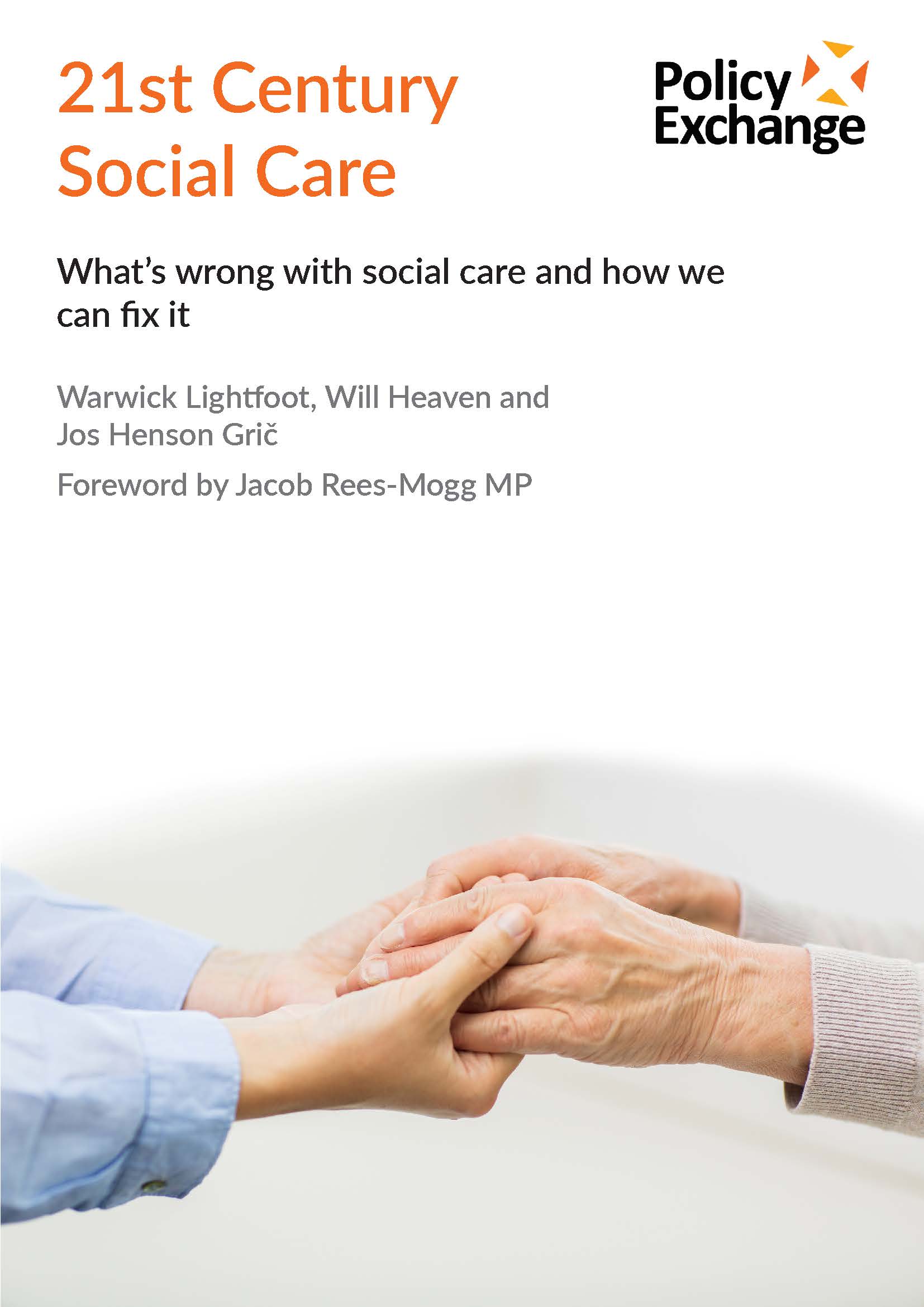
May 21, 2019
21st Century Social Care
What’s wrong with social care and how we can fix it
This research paper explores the nature and extent of the serious and urgent problems affecting the provision of social care in the UK.
It identifies how these problems have evolved from the institutional structures developed for providing health and social care and offers proposals for complex, long-term social care in England.
Summary of recommendations
- To achieve the greater coherence, efficiency and confidence that will ensure a properly functioning social care system, complex long-term social care should be funded through taxation as part of public expenditure. Like any other health or public spending, social care should be financed principally out of general taxation
- By ‘complex long-term social care’ we mean care required as a result of serious, chronic, long-term conditions which render it impossible for a person to function normally without extensive care, which has the potential to bankrupt a household should it be exposed to the full costs of the care. It is recommended that only this type of care should be principally funded as part of public expenditure.
- Like health care, complex long-term social care in England should be available on the basis of need – largely free at the point of delivery.
- The present income and capital means test for complex social care should be ended. The capital component of the test should be eliminated and the means-tested charging regime should be changed into a limited co-payment regime of the order of £5,000 per person per year means-tested on income. The new co-payment regime should be constructed so that no present user pays more than they pay under the current means-testing arrangements and all users of the service face a co-payment no greater that £5,000. This would not preclude additional private payments for extra services.
- As a basis for consultation, the starting point for the co-payment should be around one and a half times average annual pensioner income which is approximately £27,000.
- This proposal would mean that care would be largely freely provided in people’s own homes, in residential care settings such as care homes and nursing homes and it would include what are described as “hotel costs”.
- There should be a review of the assessment criteria and the thresholds of need for care to ensure that there is consistency of provision across the country. It is the framework of assessment that will ensure that the costs of care are contained in an affordable way.
- There should be additional funding in the Government’s comprehensive spending reviews to remedy the long-standing neglect of social care that is gradually making the sector unviable.
- The institutional relationship between health and social care should be reviewed to assess whether social care should remain the responsibility of local authorities, given their other responsibilities and the changes being made to the local authority grant regime.
- As part of an emphasis on improving the dignity of older, frail and disabled people, more importance should be given to respecting their autonomy, priorities and choices. The principal purpose of the co-payment is to stimulate their role as consumers of the service and to invigorate the ideas that have informed the development of personal budgets. It is not intended as a mechanism for recovery of the economic cost of the service.• The NHS should be encouraged to work with the UK’s HealthTech sector, in areas like AI and robotics that could lead to improvements in the delivery of social care.
- Policymakers in England and across the UK should be attentive to examples of developing use of technology in countries such as Japan and Norway and in any other countries where innovation is identified.
- For example, remote patient monitoring and quicker assessment of crisis situations are two challenges with the most potential to be addressed through technology, including wearable devices. The government should take ambitious steps towards assessing the potential for making greater use of such technology.
- NHS Digital should examine with the Government Digital Service the potential of creating an interactive “My Social Care” app that can be used by patients and families to access information about care options.



